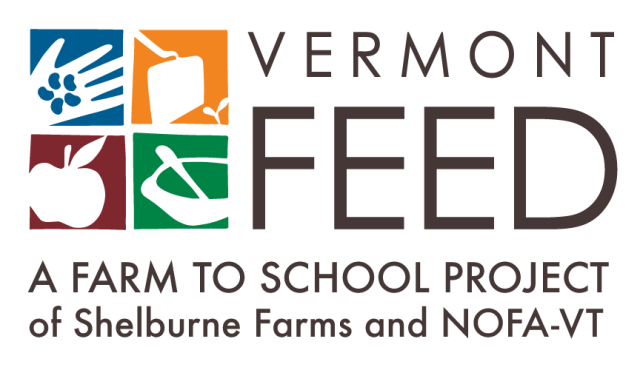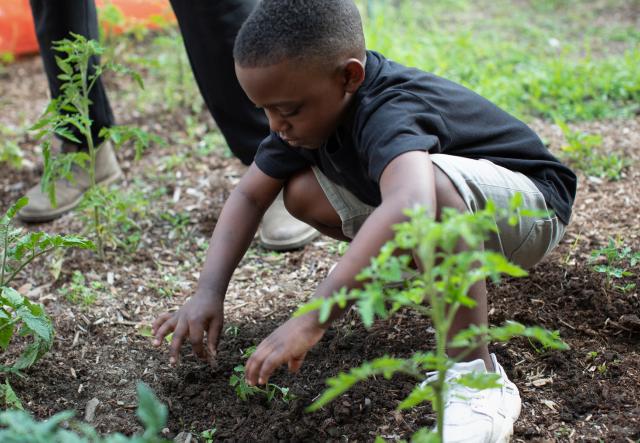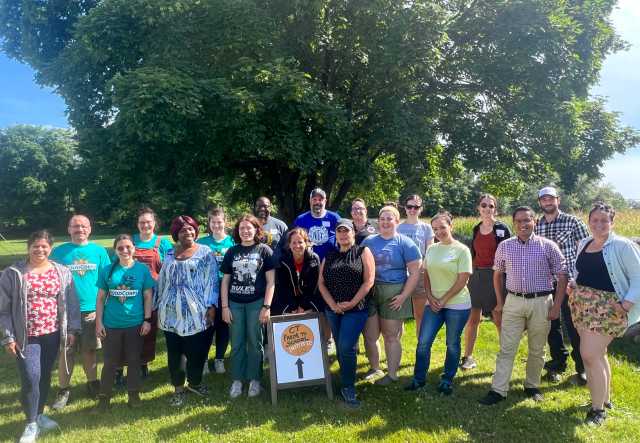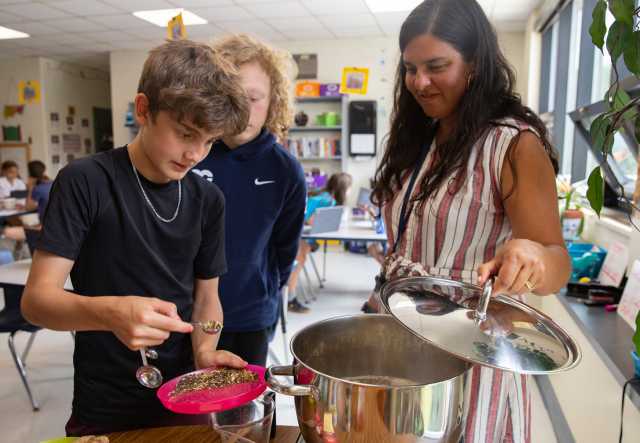Farm to School--just wonderful!! Thank you Shelburne Farms for your innovative programs and dedicated outreach to VT lives where it matters most----kids and education.
Farm to School Impact by the Numbers
2023 was a big year for our longstanding work in farm to school.
Since 2000, Vermont FEED, our partnership project with NOFA-VT, has been instrumental in advancing farm to school, locally and beyond. We work with educators, farms, and school nutrition professionals all over the region to help students understand where their food comes from and who makes it.
Vermont FEED also acts as a key connector on the state, regional, and national level. We bring farm to school champions — school administration, advocates, legislators, and more — together to share learning and effect bigger food systems change, faster.
We’re sharing a look back at some of our projects, collaborations, and campaigns that helped to propel the farm to school movement forward in 2023.
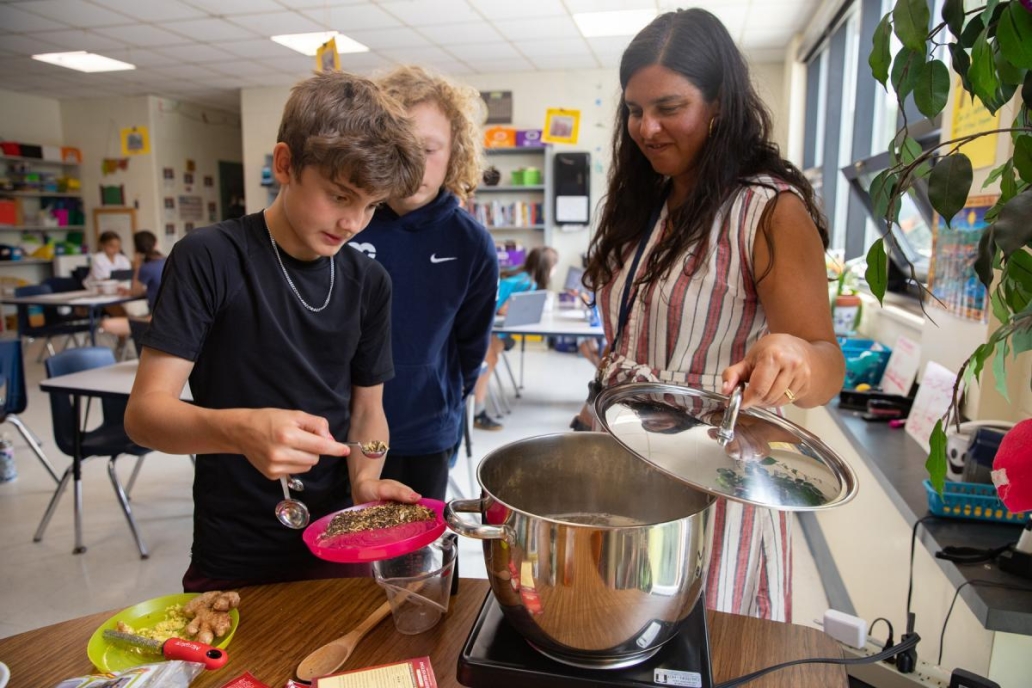
309 Teachers Impacted
42 Team Members Participated & 15,436 Students Impacted
Our Northeast Farm to School Institute bring teams together to build skills, relationships, and a collaborative action plan for their schools, districts, and early childhood programs. With the support of a coach, teams spend the school year putting their plans into action and strengthening their capacity to impact classrooms, cafeterias, and communities with change that lasts.
"In the school setting, it's really hard to bring stakeholders together and really have the time and space to get in the mindset to do this work. The food and the workshops have been amazing experiences, but that dedicated team time to really dive into this work has been the most valuable piece" –Educator Sam Bromley, Institute participant
16 Farm to School Institutes Launched & Planned
Our Farm to School Institute Adaptation Program supports states in their efforts to adapt, develop, and launch their own Farm to School Institute programs. We focus on the core components that make our Institute model successful, while modifying aspects to fit participants' local context and goals. In 2023, states all across the country are launching, or planning to launch, their own programs to serve their unique communities. Among them is Connecticut, who shared their experience.
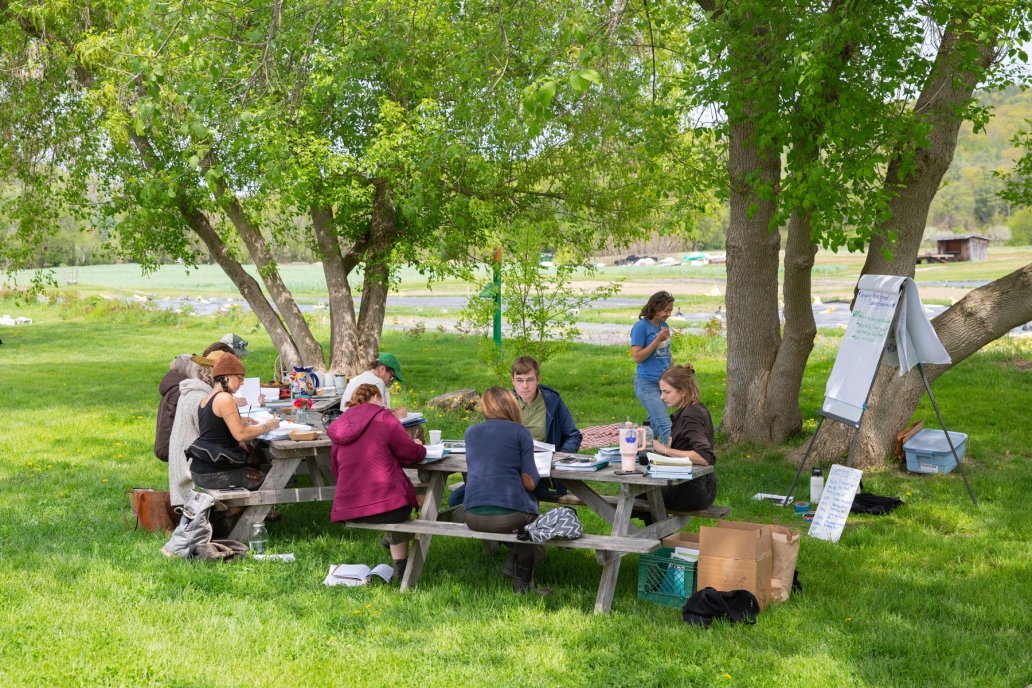
15 Farmers Mentored
“I really enjoy coaching the farmers that I'm partnering with because it's inspiring to see the work they're doing on their own land, but then also finding really interesting and educational ways to bring people onto the farm. And each farmer's doing it differently. It’s really inspiring to see the myriad of ways that they're sharing their way of life with so many Vermont kids and adults.” –Misse Axelrod, Vermont Farm and Forest School, Roxbury, VT
14 Early Childhood Teams Received Coaching
We are connecting our earliest learners to where their food comes from through our Northeast Farm to School Institute and as a partner in state grant programs. We offer technical assistance, coaching, professional learning, and grant support.
This includes supporting early childhood providers in their efforts to feed their children more local foods through Vermont's Community Supported Agriculture (CSA) Grant, which helps early childhood education programs and after school programs access more Vermont-grown foods by subsidizing the cost of a share.
"We've seen this grant jump start snack programs, nutrition education experiences for children and families, on-site garden exploration, and family food backpack programs. This incredible program helps stabilize both our farming and early childhood communities and works toward building more equitable food access and local food systems in Vermont." –Cynthia Greene, Farm to Early Childhood Education Partnership Coordinator, Shelburne Farms
We have a long partnership with early educator Laura Butler, who is building relationships with her community and farmers.
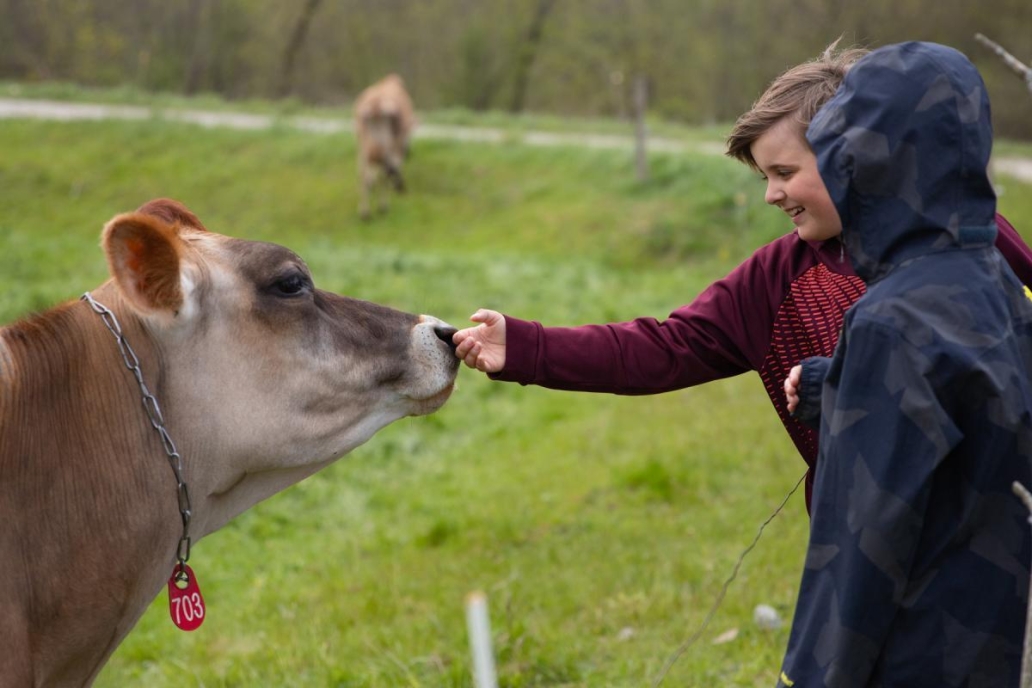
20 School / Dairy Farm Partnerships Developed
“So many kids today don’t have a connection to their food. To be able to show first hand where food comes from is a treat for us. We love to share what we do as dairy farmers, and we feel so lucky to be able to give kids the chance to pat a cow.” –Farmer & Owner Linda Stanley, Paul-Lin Dairy
20 Teens Engaged in Statewide Food Systems Youth Summit
Vermont high school students from Woodstock, Harwood Union, Leland & Gray, Montpelier, North Country Union, and Pacem gathered at Knoll Farm for the first annual Youth F.E.A.S.T. Summit (Food Education and Sustainability/Systems Thinking). The students self-organized and created a day of workshops and conversations for themselves and their fellow students passionate about food systems. They taught and attended workshops on microgreens, wildcrafting, advocating in the state house, cooking, and nutrition.
“We often hear about an academic achievement gap in schools, but I think there has been a realization over the last several years that there is actually an engagement gap. We have to stop blaming young people for not being engaged and recognize the strategies that we can use as educators for learning to flourish. Co-creating programming and putting students in the position of decision-maker in their own education is one way toward this deeper learning schools are looking for.” –Director of Professional Learning Jen Cirillo, who supported the students in this event
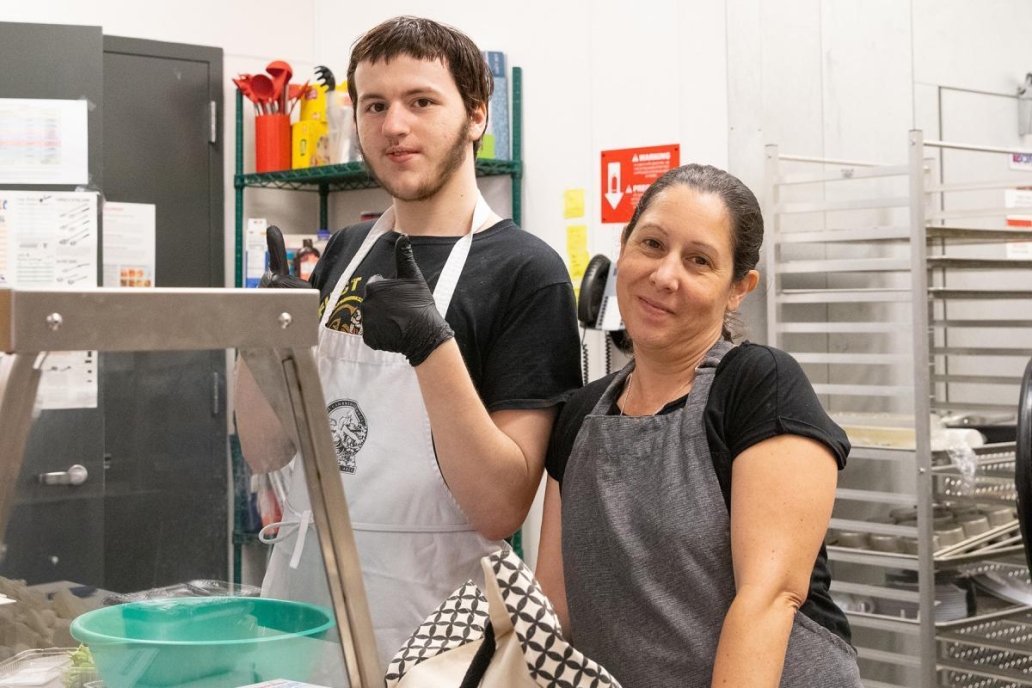
83,000 Students Impacted by 'Farm-Fresh School Meals for All' Campaign
Combined with the Vermont Farm to School & Early Childhood Grants and the Local Foods Incentive Grants, Universal School Meals ensures every Vermont student has equitable access to nutritious local food and food education.

